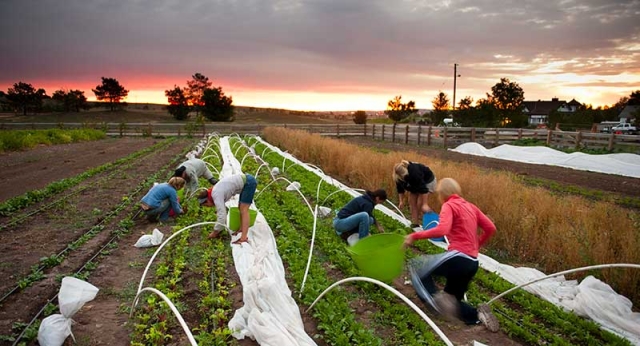A Case for Defining Regenerative Agriculture
It’s no secret that organic food is trendy. But why? Consumers believe that organic is better for the environment and better for their health. In some cases, this is true, in others, not so much. Buying lettuce from your local grower will almost always have a lower carbon footprint than buying certified organic lettuce in the supermarket. But while you’d need to talk to (and trust!) your local farmer to find out if they used synthetic chemicals to grow your lettuce, that little green label—USDA Organic—assures you that the grocery store spinach was grown without these harmful chemicals.
This is not to say that certified organic food is “better” than locally grown food. In fact, often times locally grown food IS organically grown, it just isn’t certified. However, organic certification enables farmers to have a competitive marketing advantage and provides consumers with guarantees on how their food was produced. For these reasons, I believe that regenerative agriculture should have an established definition as well.

The organic food market has seen significant growth in recent years. Amazon’s acquisition of Whole Foods Market is just one example of how popular organic food has become. And while organic food, by definition, prohibits the use of synthetic chemicals in its production, there are more environmentally and socially beneficial ways to farm. Large-scale organic farming often perpetuates the same issues created by conventional agriculture. The use of heavy machinery for consistent tillage results in soil erosion and compaction on large organic farms, just as it does on conventional farms. Furthermore, large organic farms often ship their produce thousands of miles away, resulting in massive carbon emissions.
Practitioners of regenerative agriculture exceed organic farming standards by employing soil-building techniques (like cover cropping) and equitable food distribution models (such as subsidized CSAs). However, with no consensus on a definition, farmers can’t be “certified regenerative” nor can they use the phrase to market their products without causing confusion among consumers. What’s more, without a hard definition, corporations will undoubtedly claim the phrase to green wash their products and earn more revenue – delegitimizing the phrase in the process.
Regenerative agriculture means different things to different people, but it is ultimately a much more beneficial way to produce food than organic alone. As the effects of climate change continue to cause damage to the environment and to vulnerable populations, it is more important than ever to go beyond organic. Defining regenerative agriculture can help us create a shared framework to practice farming in ways that promote the health of our environment, our economy, and our species as a whole.
Add new comment